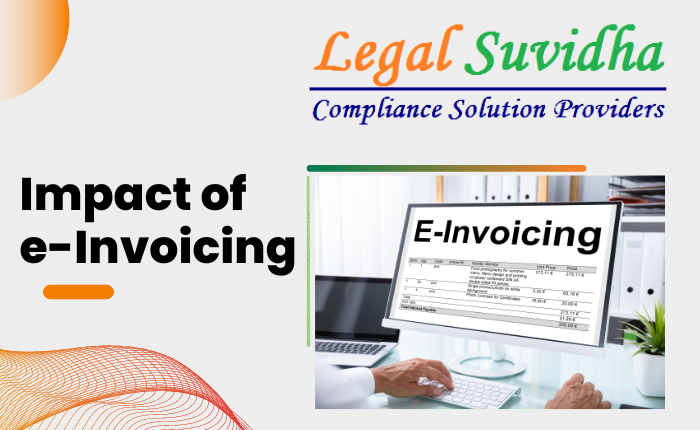e-Invoicing, or electronic invoicing, refers to the process of creating, sending, receiving, and managing invoices in a digital format instead of using traditional paper-based invoices. It involves the automated exchange of invoice data between business partners using standardized electronic formats.
The significance of e-Invoicing in modern business transactions is primarily driven by its numerous benefits and advantages over traditional paper-based invoicing methods. Here are some key points highlighting its significance:
1. Efficiency and Cost Savings: e-Invoicing streamlines the invoicing process, reducing manual tasks and paperwork. It automates the creation, distribution, and processing of invoices, leading to improved efficiency and significant cost savings. Manual errors and delays associated with paper-based processes are minimized, resulting in faster payment cycles and reduced administrative costs.
2. Faster Payments: With e-Invoicing, invoices reach the recipients instantaneously, eliminating postal delays and ensuring timely delivery. This speeds up the payment process and reduces the average time it takes to receive payments. Quicker payments positively impact cash flow management and working capital for businesses.
3. Enhanced Accuracy: e-Invoicing reduces the likelihood of errors and discrepancies that commonly occur with manual data entry. By eliminating manual data entry, the risk of typos, incorrect calculations, and mismatched information is greatly reduced. This improves the accuracy and reliability of financial records.
4. Simplified Compliance: Many countries and jurisdictions have implemented regulations and requirements for electronic invoicing, such as the European Union’s Directive on e-Invoicing and similar initiatives worldwide. Adopting e-Invoicing helps businesses comply with these regulations, ensuring legal and tax compliance while reducing the burden of compliance-related tasks.
5. Improved Data Integration and Analysis: Digital invoices can be easily integrated with accounting systems, enterprise resource planning (ERP) software, and other financial management tools. This enables seamless data integration and simplifies the reconciliation process. Additionally, the availability of standardized electronic data allows for better data analysis, reporting, and decision-making.
6. Environmental Sustainability: By eliminating paper-based invoices, e-Invoicing reduces paper consumption, printing costs, and the environmental impact associated with paper production and transportation. It supports sustainable business practices and aligns with the growing global focus on environmental responsibility.
Overall, e-Invoicing offers significant advantages in terms of efficiency, cost savings, accuracy, compliance, data integration, and sustainability. Its adoption is increasingly prevalent in modern business transactions, driving digital transformation and improving financial processes for organizations of all sizes.
The distinction between B2B and B2C e-Invoicing
B2B (Business-to-Business) and B2C (Business-to-Consumer) e-Invoicing refer to electronic invoicing processes that cater to different types of transactions and relationships. Here are the key distinctions between B2B and B2C e-Invoicing:
1. Business Relationships:
– B2B e-Invoicing: It involves electronic invoicing between two businesses. The invoicing process typically occurs between companies that engage in commercial transactions, such as suppliers and buyers, service providers and clients, or manufacturers and distributors.
– B2C e-Invoicing: It pertains to electronic invoicing between a business and individual consumers. The invoicing process targets end-consumers or retail customers who purchase goods or services from a company.
2. Complexity:
– B2B e-Invoicing: B2B transactions often involve more complex invoicing requirements. They may include additional details such as purchase order numbers, contract references, line-item descriptions, terms and conditions, and VAT (Value Added Tax) information. B2B e-Invoicing systems need to accommodate these complexities and support integration with the buyers’ procurement or accounting systems.
– B2C e-Invoicing: B2C transactions typically have simpler invoicing requirements. Invoices for retail customers usually focus on basic information such as the total amount due, item descriptions, taxes (if applicable), and payment instructions. The emphasis is on providing clear and concise information to the consumer.
3. Volume and Frequency:
– B2B e-Invoicing: B2B transactions often involve larger transaction volumes and higher invoice frequencies. Businesses frequently engage in recurring transactions, and invoices may be issued for multiple items or large quantities. B2B e-Invoicing systems need to handle high volumes of invoices efficiently and support features like batch processing or automated invoice generation.
– B2C e-Invoicing: B2C transactions generally involve smaller transaction volumes and lower invoice frequencies. Invoices are typically issued per individual purchase or transaction, and the volume of invoices is usually more manageable compared to B2B scenarios. B2C e-Invoicing focuses on providing clear and concise invoices tailored to individual consumer needs.
4. Legal and Regulatory Requirements:
– B2B e-Invoicing: B2B transactions may be subject to specific legal and regulatory requirements based on the countries or regions involved. Different tax laws, invoicing standards, and reporting obligations may apply, necessitating compliance with specific B2B e-Invoicing standards and formats.
– B2C e-Invoicing: B2C transactions are generally subject to fewer legal and regulatory requirements compared to B2B. However, businesses must still adhere to consumer protection laws, ensure transparency in pricing, and provide clear information on invoices for consumer understanding.
B2C transactions and their importance in the business world
B2C (Business-to-Consumer) transactions refer to commercial exchanges that occur between businesses and individual consumers. In B2C transactions, businesses offer products or services directly to end-users or retail customers. Here is an overview of B2C transactions and their importance in the business world:
1. Nature of B2C Transactions:
– Direct Sales: B2C transactions involve businesses selling products or services directly to individual consumers without any intermediaries.
– Retail Environment: B2C transactions commonly take place in physical retail stores, online marketplaces, e-commerce websites, mobile apps, or through other direct consumer channels.
– Individual Consumers: B2C transactions target the end-users, who purchase goods or services for personal use or consumption.
2. Importance in the Business World:
– Revenue Generation: B2C transactions form a significant portion of a business’s revenue stream. Many industries, such as retail, hospitality, e-commerce, entertainment, and personal services, heavily rely on B2C transactions to drive their sales and profitability.
– Market Reach: B2C transactions enable businesses to reach a wide consumer base and tap into the mass market. By catering directly to individual consumers, businesses can access a large number of potential customers and expand their market share.
– Customer Relationship Building: B2C transactions provide opportunities for businesses to establish and nurture customer relationships. By directly interacting with consumers, businesses can understand their needs, preferences, and buying behaviors. This knowledge helps in personalized marketing, targeted promotions, and the development of customer loyalty programs.
– Branding and Reputation: B2C transactions play a crucial role in building brand recognition and reputation. Positive experiences and satisfaction gained through B2C interactions contribute to customer loyalty, word-of-mouth recommendations, and long-term brand value.
– Innovation and Consumer Trends: B2C transactions drive innovation and shape consumer trends. Businesses closely monitor B2C transactions to identify consumer demands, preferences, and emerging market trends. This information helps businesses develop new products, improve existing offerings, and stay competitive in the market.
– Economic Impact: B2C transactions significantly contribute to the overall economic growth and stability of a country or region. Consumer spending driven by B2C transactions stimulates business activities, generates employment opportunities, and supports economic development.
3. Evolving B2C Landscape:
– Digital Transformation: The rise of e-commerce and digital platforms has revolutionized B2C transactions. Online shopping, mobile commerce, and social media marketing have transformed the way businesses interact with consumers and conduct transactions.
– Personalization and Customer Experience: B2C transactions are increasingly focused on personalized experiences. Businesses leverage customer data, analytics, and artificial intelligence to tailor offerings, provide personalized recommendations, and enhance the overall customer experience.
– Omni-channel Approach: B2C transactions now span multiple channels, integrating physical stores, e-commerce websites, mobile apps, social media platforms, and more. Businesses strive to create a seamless and consistent customer experience across these channels.
– Importance of Reviews and Social Proof: B2C transactions are heavily influenced by consumer reviews and social proof. Online reviews, ratings, and recommendations significantly impact consumer purchasing decisions, making reputation management and online presence crucial for businesses.
In summary, B2C transactions are a vital component of the business world, driving revenue generation, market reach, customer relationship building, branding, and innovation. They shape consumer trends, contribute to economic growth, and are continually evolving with the advent of technology and changing consumer behaviors.
If You have any queries then connect with us at [email protected] or [email protected] and you can contact us & stay updated with our latest blogs & articles


